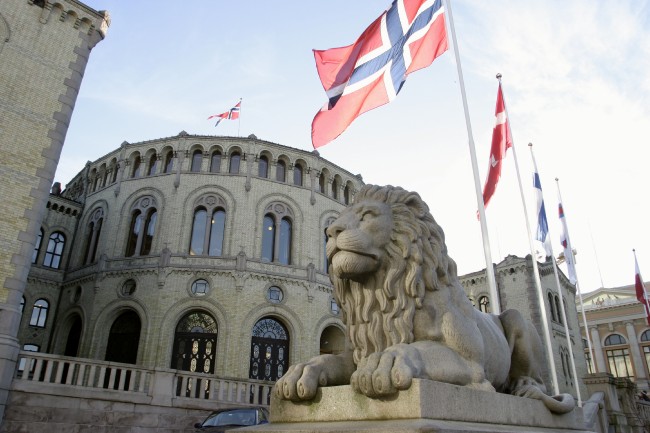|
If the red/green coalition were to lose their majority after the election, they would be unable to form a government, admitted Norwegian Prime Minister and Labour Party leader Jens Stoltenberg to the Aftenposten newspaper. In the last election debate Stoltenberg was forced to defend criticism of his government’s policy on immigration, the environment and reducing poverty over the last four years. In answering his critics on immigration, Stoltenberg noted that the number of asylum applications in Norway had fallen dramatically in 2008. "What we’re doing to reduce the number of asylum-seekers is building a welfare centre in Afghanistan, and helping those who need it there," he explained. "That’s an important step in decreasing the flow of underage people from Afghanistan to Norway." Rune Karlsen added that the country’s involvement in the war in Afghanistan was the most hotly debated foreign issue in the lead-up to the election. Both Stoltenberg and the leaders of the other parties conceded to the media on the last day before the election that foreign policy and the fight against poverty in the world had received far too little attention in election debates. Whether Norway should join the EU or what kind of cooperation the country should pursue with the union are questions that analysts feel are likely to play a greater role in the next elections in 2013. By then it should be clearer what has come of the Lisbon Treaty and whether – and on what conditions – Iceland has been admitted as a member state. In other words: what the EU’s fishing policy is, since it is this policy that has caused most chagrin amongst Norwegians. Once this is known, the parties will be able to more precisely outline their stance in terms of the EU. Norwegians traditionally go to the polls to elect their parliament, the Storting, on Mondays. Nevertheless, local governments may decide to bring the election forward to the Sunday, as Oslo did this year. Electors can also cast their vote in pre-poll voting – an option chosen by a record 700,000 Norwegians this year. This may be related to fears about swine flu: "A lot of people are worried about getting infected and have decided to stay home on election day," electoral office information manager Kjetil Bjørnsrud explained to the Dagens Nyheter newspaper. |
EU leaves Norwegian politicians and voters cold
|
Describing the public debate that took place prior to the Storting elections, Rune Karlsen from the Norwegian Institute of Social Studies said: "The political issues that people raised were schools and care services for the elderly, and to some extent also the environment and taxes." The EU was a key issue for just 2% of voters in the election. "Although in the media all political issues have been overshadowed by the question of who would be running the government," Karlsen added. The final exit poll conducted by Norway’s Tv2 indicated a slight lead for the civic parties, who to that point had been in opposition: 87 seats to the 82 of the ruling coalition (the Norwegian Labour Party, the Socialist Left Party and the Centre Party). A month ago the ratio was vice versa. |

 Although Iceland, after originally saying no to accession, will now become the fourth Nordic nation to join the European Union (EU), their about-face failed to reignite debate on the issue in Norway prior to the country’s parliamentary elections. The hot potato in the run-up to election day was who would form the new government.
Although Iceland, after originally saying no to accession, will now become the fourth Nordic nation to join the European Union (EU), their about-face failed to reignite debate on the issue in Norway prior to the country’s parliamentary elections. The hot potato in the run-up to election day was who would form the new government.